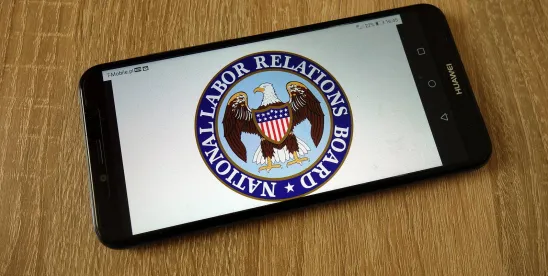As we have previously reported, from the time President Biden took office, the National Labor Relations Board (“NLRB” or the “Board”) began systematically reversing Trump-era policy, and shifting toward pro-union and pro-employee policies. On August 22, 2024, the Board (the “NLRB” or “Board”) continued that push. This time taking steps to significantly impede the ability of employers to avoid unfair labor practice (“ULP”) charges without resorting to litigation.
In Metro Health, Inc. d/b/a Hospital Metropolitano Rio San Pedras, 373 NLRB No. 89 (2024), the Board again rejected its longstanding precedent and reinvented American labor law by deciding that it would no longer allow employers to utilize consent orders to resolve unfair labor practice charges; a practice the Board had allowed for over 30 years.
Background
For decades the Board has allowed parties to resolve unfair labor practice charges without proceeding to litigation and without a full adjudication on the merits. This often takes the form of a bilateral settlement agreement, in which the employer, and the NLRB General Counsel (“GC”) and/or the charging party reach a mutual agreement about how to resolve the charge.
However, bilateral settlements were not the only method used to resolve ULP charges without litigation. Until Metro Health, these charges could also be resolved by the entry of a consent order. Unlike a bilateral settlement agreement, in which the employer agrees with the charging party and/or GC to resolve the ULP on certain terms, a consent order is proposed by the employer and then approved by the Board without the agreement or consent of the charging party and/or GC.
In 1971, in Electrical Workers, 188 NLRB 855 (1971), the Board approved the first consent order to resolve a ULP charge. In that case, the employer proposed various remedial steps it would take in exchange for resolving the charge. The Board approved the proposed resolution despite the objection of both the GC and the charging party. There, the Board approved the consent order based on the fact that the employer’s proposal would provide “a full remedy for all of the violations alleged in the complaint.” However, before long, a consent order no longer had to provide “a full remedy” to gain Board approval.
Beginning in 1987, with the Board’s decision in Independent Stave Co., 287 NLRB 740 (1987), the Board began applying a “reasonableness” standard to its evaluation and approval of settlement agreements to resolve ULP charges. Under this standard, settlements would be approved if they “substantially remedied” the violations alleged in the ULP complaint and were “reasonable.” The Board justified its approval of such settlements based on its longstanding “policy of encouraging the peaceful, non-litigious resolution of disputes,” particularly in the form of “private negotiated settlement agreements.” The Board also explained that where the charging party and employer agree to settle a charge, they make an informed decision to compromise to reduce their respective risk in proceeding to litigation, and the Board would show deference to that self-determination. Though initially only applicable to bilateral settlement agreements, before long Independent Stave was applied more broadly to resolve ULP charges.
Beginning in 1991, in decisions like Copper State Rubber, 301 NLRB 138 (1991) and Food Lion, Inc., 304 NLRB 602 (1991), the Board began applying the Independent Stave standard when it evaluated proposed consent orders. Under this approach the Board then approved consent orders that “substantially remedied” the alleged violations. This provided the Board, and its ALJs, discretion to resolve ULP charges where doing so would effectuate the purposes and policies of the National Labor Relations Act (“NLRA”), even if the proposal did not provide a full remedy.
That approach endured for 25 years until the Board issued its decision in United States Postal Service, 364 NLRB 1704 (2016). In that decision, the Board held that the Independent Stave standard was not an appropriate standard for evaluating a consent order because the considerations that justify the approval of a settlement agreement—in particular the deference to the charging party’s judgment about their interests and risk tolerance—do not exist where the charging party does not consent to the resolution.
This was short lived however, and after only one year, the Board found an opportunity to reexamine its standard for analyzing consent orders. In UPMC, 365 NLRB 1418 (2017), the Board reversed United States Postal Service, and returned to applying Independent Stave to consent orders. The Board specifically referenced its longstanding policy of using the reasonableness standard in evaluating consent orders. This remained the applicable standard until August 22, 2024.
Metro Health
On August 22, 2024, the Board released its decision in Metro Health, and not only overturned UPMC, but went much further.
In the ULP proceedings underlying Metro Health, after evaluating the employer’s proposed consent order using the standard described in UPMC, the ALJ approved the consent order despite the objections of the charging party and the GC. The GC then filed a Request for Special Permission to Appeal the ALJ’s approval of the consent order with the Board. In that request, the GC asked the Board to overrule UPMC and return to the standard under United States Postal Service. The GC also contended that the NLRA “strongly militate[s] against the practice of issuing consent orders under any circumstances.”
After reviewing the parties’ contentions, the Board ended its acceptance and approval of consent orders altogether, rather than returning to the previous standard. The Board cited a number of reasons for its drastic change in its policy.
First, the Board held that its rules and regulations do not allow consent orders. The Board said that while its rules and regulations expressly allow for mutual settlements, consent orders are not mentioned in the rules at all. Moreover, the Board explained that to the extent that previous decisions suggest consent orders are a form of settlement agreement, that is incorrect. In the Board’s view, consent orders cannot be settlement agreements because only the employer consents to the terms, there is no mutual agreement.
Second, the Board suggested that consent orders create substantial additional administrative burdens on the Board and determined that a consent order requires substantial effort on the part of the Board when the case has not been fully litigated. The Board suggested that this was the case no matter the standard applied, because it would be required to determine if a consent order was reasonable under the UPMC standard, or to determine if the consent order provided a full remedy under the United States Postal Service standard.
Third, the Board held that consent orders intrude on the GC’s prosecutorial authority. The Board explained that under the law the GC has final authority to prosecute or withdraw a charge. Because a consent order allows an ALJ to decide to end a case based on the employer’s proposal with no input from the GC, it interferes with and impedes the GC’s authority to conduct the prosecution as she sees fit.
Lastly, the Board held that consent orders are contrary to the public policy underlying the NLRA. As a starting point, the Board explained that under the NLRA, the Board is authorized by statute to adjudicate cases even where the parties agree to a mutual settlement to resolve a ULP charge. So, in the Board’s view, it is under no obligation to accept consent orders at all. Additionally, while the Board reiterated its commitment to its pro-settlement policy, in the Board’s view, consent orders are not settlements, and are therefore not the kind of mutually agreeable resolutions the NLRA seeks to encourage in the interest of maintaining “industrial peace.” The Board also suggested consent orders are contrary to its policy favoring expedience in remedying unfair labor practices, because consent orders delay adjudication of the ULP while the propriety of the consent order is evaluated.
Key Takeaways
With its decision in Metro Health, the Board continues its trend of breaking from established precedent to push the pro-employee and pro-union agenda that has become a hallmark of President Biden’s term in office.
This is yet more concerning news for employers because it eliminates one viable method for disposing of ULP charges. With the Board’s decision, employers will now be forced to reach a mutual settlement agreement with charging parties and the GC, or resort to litigating the charge. Along with the Board’s continued efforts to expand the penalties for employers found to have committed unfair labor practices, this decision presents substantially greater risks for employers by significantly reducing the likelihood of any pre-hearing resolution on terms favorable to employers.






 />i
/>i
